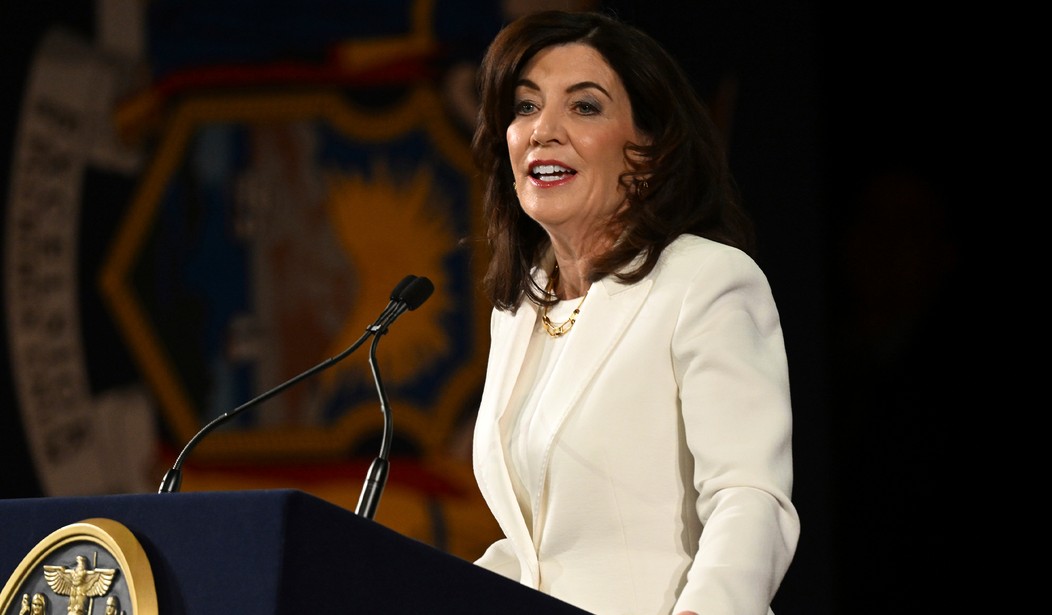Last month, Lorenz Kraus, 53, shocked viewers on CBS6 in Albany, New York, by admitting he murdered his elderly parents.
He said that their declining health and age made his act "necessary."
Krause strangled his 92-year-old father and suffocated his 83-year-old mother, burying them in the backyard. Krause mowed his parents' lawn for the next eight years and shoveled their driveway.
He also collected their Social Security checks.
“I did the right thing for them based on the situation. I did my duty as a son,” he told the CBS affiliate.
Krause was arrested and charged with murder. But the issue of assisted suicide in New York is roiling the state's politics. The General Assembly and Senate have both approved the Medical Aid in Dying (MAiD) Act, which would allow people who have received terminal diagnoses to request lethal drugs.
What Krause did could not, under any circumstances, be considered "assisted suicide." But some advocates of the MAiD Act believe that it demonstrates the necessity of the Act.
“There are 40 million boomers," Krause told CBS6. "They’re all going to go through these kinds of problems. It affects all of us, and we need to widen up the law so that we can deal with these kinds of problems in a humane way.”
So says the "compassionate" father strangler.
Assemblymember Amy Paulin, the bill’s lead sponsor, said that New York was “finally on the brink of giving terminally ill New Yorkers the autonomy and dignity they deserve at life’s end."
That's what they all say. Eleven states and Washington, D.C., allow for some form of assisted suicide. In every single instance, the law evolves from a way to end physical suffering at the end of life to ending the lives of anyone who may be depressed or lonely.
Indeed, Canada's MAiD Act is the poster child for the slippery slope.
Canada, which legalized assisted suicide for terminally ill patients in 2016 and then removed the terminal illness requirement in 2021, demonstrates how quickly such laws get used to justify suicide for nonlethal conditions. In 2022, for example, the Canadian government allowed 2,264 people to end their lives because of loneliness, 323 because they couldn’t access palliative care, and 196 because they couldn’t obtain disability support.
Oregon, which effectively legalized assisted suicide in 1997, has seen similar trends. Last year, the top reasons for choosing assisted suicide were loss of autonomy (88.6 percent), engaging in fewer enjoyable activities (87.8 percent), and a perceived loss of dignity (63.6 percent).
Assuming, for the sake of argument, that ending his parents’ suffering was Kraus’s only motive, he might have packed his folks off to Canada to schedule their demise. And in that case, he’d be an assisted-suicide advocate in good standing.
The Catholic Church has taken the lead in opposing the MAiD Axt in New York. "While New York rightly spends millions of dollars a year to combat suicide, it is considering undermining these efforts significantly by declaring that oftentimes, suicide is “death with dignity.” The not-so-subtle implication is that those who choose to fight for their lives or to simply allow themselves to die a natural death are somehow undignified," according to the New York State Catholic Conference.
"In Canada, It's Easier to Access Euthanasia Services Than Health Care," I wrote in 2023.
"Exactly what those who predicted a slippery slope to an ethical breakdown warned us about has now come to pass. Euthanasia proponents scoffed at the idea that the mentally ill would be given the opportunity to end their lives, but it’s come about much faster than anyone would have predicted," I wrote, referring to the passage of an expansion of conditions where euthanasia was legal.
"Depression" is now a justification for ending your own life in Canada. An eminently treatable psychological affliction, which is transient in the overwhelming majority of cases, gives lonely people a chance to kill themselves. It's barbaric.
Governor Hochul has been quiet about what whether she'll sign the MAiD Act. She has until the end of the year to sign the bill into law or let it die. Hochul, who is Catholic, says her beliefs will not interfere with her decision on whether or not to sign the bill.
“As governor we’re all products of our own circumstances and life influences, but I have to be very careful not to allow that to color my decision making when I’m making a decision not for myself but for 20 million New Yorkers,” Hochul told Spectrum News.
"Slippery slope" arguments are usually political constructs with little relation to the real world. The evidence of how these MAiD Acts have kept expanding the circumstances where assisted suicide is allowed should give Hochul a good excuse not to sign this bill.










